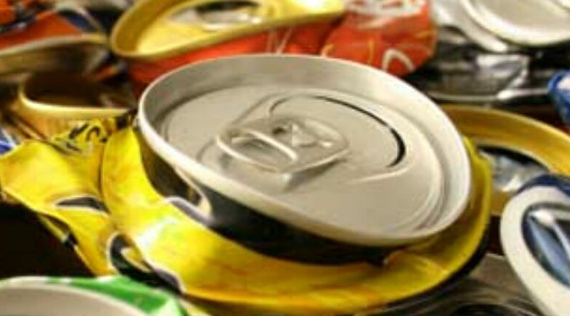
SEATTLE (Waste Advantage): New research powerfully underlines the value that aluminum used beverage cans (UBC) bring to America’s recycling system. A study conducted by Gershman, Brickner & Bratton, Inc. (GBB) for the Can Manufacturers Institute (CMI), Aluminum Beverage Can: Driver of the U.S. Recycling System, found that the relatively high value of UBCs make them essential to the country’s network of material recovery facilities (MRF). In fact, the report found that without the revenue from UBCs, most MRFs in the United States would not be able to operate without making significant changes that would ultimately affect the cost of recycling to consumers.
The study further shows that MRFs can generate additional revenue from UBCs with investments in aluminum can recycling equipment. This equipment effectively and efficiently captures missorted cans and pays for itself in as short as one year, according to the new study released today. This equipment would increase MRF revenues by catching missorted, highly valuable UBCs.
CMI commissioned the study to quantify the value of UBCs, as well as to detail where UBCs are missorted at MRFs as single-stream recyclables are separated and to highlight the opportunity for individual MRFs to drive more revenue into the recycling system through installing additional aluminum beverage can capture equipment. “The can industry produced approximately 95 billion aluminum beverage cans in 2019 that were filled with a variety of refreshing beverages including soft drinks, beer, teas and other thirst-quenching refreshments,” said CMI Vice President of Sustainability Scott Breen. “The aluminum can is the textbook example of the circular economy because of its high recycled content (73%), its leading recycling rate among all beverage containers (50%), the fact that metal recycles forever and the vast majority of aluminum beverage cans get turned into new cans. The findings of this report help beverage companies and consumers understand that when they choose a can, not only are they choosing a sustainable, circular package, they are also doing their part to boost the U.S. recycling system.”
Key to the conclusion that UBCs are vital to the economic viability of the recycling system is that in non-deposit states, UBCs represent a larger portion of MRF revenues than any other single material commodity. UBCs represent 33 percent of a typical MRF’s revenue in states without container deposit laws (UBCs represent 12.5% of a typical MRF’s revenue in states with container deposit laws, which charge consumers a redeemable deposit at the point of sale), using 2019 recycled commodity values.
Properly sorting UBCs at MRFs can build upon the 45 billion aluminum beverage cans that annually flow through the aluminum beverage can’s existing circular system. GBB estimated that up to 25 percent of UBCs entering MRFs are missorted and do not end up in UBC bales. These missorted cans represent the potential loss of aluminum that could have been recycled forever as well as the loss of significant revenue. It is estimated that a medium to large MRF processing 50,000 tons of recyclables per year in a non-deposit law state may be losing up to 275 tons of UBCs per year (more than 18.5 million individual cans), due to improper sorting. If these cans were captured, the MRF would see an increase in gross annual revenues of $297,500 (approximately 8.3%) in a calendar year. The aluminum can capture equipment currently available is effective and can pay for itself in a short period of time. The additional UBCs captured by a medium to large size MRF installing both an additional eddy current system on the MRF’s residue line and a robot on the MRF’s fiber line translates into an increase in annual gross revenues of roughly $170,000. This additional revenue would cover the additional capital cost of the equipment in just over two years. Moreover, installing just an additional eddy current separator increases annual gross revenues roughly $100,000 and pays for itself in about one year.
Courtesy: www.wasteadvantage.com



| Copper Scrap View All | |
| Alternator | 0.40 (0) |
| #1 Copper Bare Bright | 4.06 (0.01) |
| Aluminum Scrap View All | |
| 356 Aluminum Wheels (Clean) | 0.79 (0) |
| 6061 Extrusions | 0.69 (0) |
| Steel Scrap View All | |
| #1 Bundle | 360.00 (0) |
| #1 Busheling | 380.00 (0) |
| Electronics Scrap View All | |